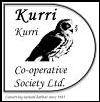| Twenty-four people attended a meeting at Naringal yesterday in a bid to establish a
co-operative to buy about 32 hectares of bushland for conservation.
The Warrnambool Nature Reserves Society is keen to establish the co-operative to buy the
land near Naringal.
President of the society, Mr Pat Urbonas, yesterday said about half the people at the
meeting were members of the public.
Another 17 people from outside the society had apologised for not being able to attend, but
had shown their interest in the proposal.
Twelve positive responses had also been received from Melbourne, Mr Urbonas said.
He said a meeting would be held on Thursday to plan the formation of the co-operative for
submission to an assembly of interested people.
Another meeting would be held, hopefully in another three weeks, which would elect directors
of the co-operative and offer shares for sale, Mr Urbonas said.
The land cannot be bought until enough shareholders came forward, he said about 130 would be
needed to purchase the land.
Referring to yesterday's meeting, Mr Urbonas said: "I was very encouraged with the way it went
today."

While Australia's more vocal conservationists have mounted very public campaigns
in recent times to save wild rivers and rain forests, another band of nature lovers
has found a different solution to protecting the environment.
There is a growing movement in Victoria towards co-operative land purchases in sensitive
areas. The south-west is about to see its first.
According to a pioneer of the movement, Les Smith, a member of the Blackburn Tree Preservation
Society, there are at least eight conservation co-operatives now active in the State. They
are also known as environmental co-operatives.
The movement enables like-minded people to purchase remaining pockets of bushland, often close to
national parks and reserves, to prevent their development. Conservationists claim there are only
a few representative and viable parcels of bushland left in Victoria. By forming a co-operative
and acquiring this land, it is spared the threat of clearing for agriculture or
sub-dividing for
building.
Conservation co-operatives plan the proper management of the land which they buy. This involves
taking responsibility for fencing, rabbit control, fire prevention, weed control, vehicular access,
walking tracks, regeneration of local native flora and the maintenance of camp sites and amenities.
Members say this prospect offers some appeal to landowners, who need to sell, but who want to guard
against development of their bushland. Selling to a conservation co-operative will see the land protected
and managed for future generations.
Pat Urbonas, chairman of directors of the Warrnambool district's first environmental co-operative, Kurri Kurri,
says members are bound together by a mutual appreciation of ecology and a desire to use bushland for recreation.
His society is looking for up to 200 sympathetic shareholders to subscribe to the purchase
of 32 hectares of natural bush at Naringal, close to the Ralph Illidge Sanctuary. It has more than 40 members already.
Mr. Smith, who belongs to the Urimbira co-operative, says its 120 members own 400 ha in the Little Desert
near Kaniva. It grew out of a Statewide controversy in 1973 over subdivisions in the wilderness of the southern Wimmera.
He says the Montrose Environment group's co-operative owns just a few hectares at Wartook,
west of Zumsteins in the Grampians. Members run a camp there surrounded by thousands of planted trees and shrubs.
The Iluka Co-operative Society owns a spit of land 15 metres above the sea overlooking Corner inlet at
Yanakie on Wilson's Promontory. Seventeen families use the area for holidays, abutting the national park.
The conservation co-operatives are set up under new sections of the Co-operative Act 1982. They are governed
by model rules and by specific by-laws adapted to the body's own needs.
Kurri Kurri's property at Naringal will be available to members and their immediate families for recreational purposes.
It is hoped to set aside a camping area. Horses and cats will be banned and dogs permitted only under strict supervision.
Tight controls will also be kept on fires, the major hazard to the area.
In fact the land was burnt out in last year's Ash Wednesday blaze. Mr. Urbonas says it is now regenerating normally with
vigorous regrowth of eucalypts and seedlings of other plant species. There are several colonies of grass trees on the
property. It has two large water holes in gently undulating gum and messmate forest.
He says picking wildflowers will be banned although the "careful collection of small cuttings or seeds for propagation purposes"
can be approved by the co-operative's seven directors.
Kurri Kurri is an Aboriginal expression for "the very first". The co-operative was set up three months ago. A contract to buy the land
has been drawn up, but has been set aside until the society earns full membership.
The directors plan a general meeting early next month to consider the next phase of the project.
The co-operative's postal address is Box 505 Warrnambool 3280.
|



